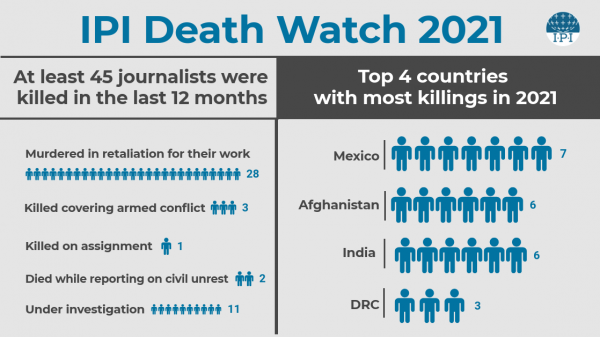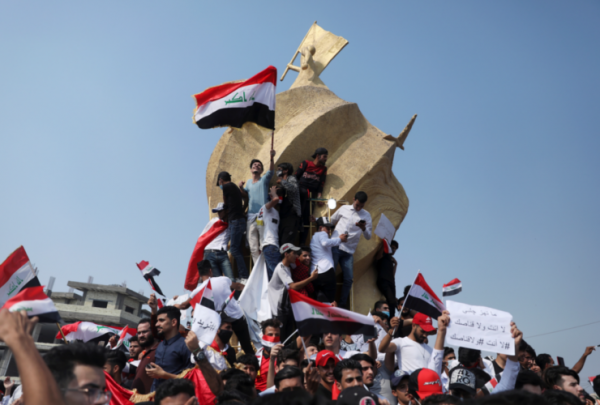Two days after parliamentary elections in Iraq marked by a voter turnout of over 60% despite attacks that killed 38 people, IPI calls on any new Iraqi government to respect media freedom
In the run-up to the 7 March polling, the Iraqi Communications and Media Commission (CMC) attempted to impose new restrictions on media outlets to counteract what it called incitement to sectarianism by broadcasters, according to media reports. The new rules require all media members to register with the CMC, and to pledge not to incite violence or sectarianism.
Responding to questions on the media “clampdown” during a CNN interview two days before the elections, Iraqi Prime Minister Nouri al-Maliki admitted that “mistakes have been made” by officials, but also blamed journalists, who “don’t know their limitations or how to behave to obtain information.”
He stressed the importance of passing a media law to regulate journalists’ activities and guarantee their rights.
Journalists in Iraq are often attacked and intimidated by Iraqi security forces, and face criminal defamation lawsuits filed by public officials.
Members of al-Maliki’s own government and other officials from state institutions were responsible for filing some of the most prominent defamation suits in 2009. Last May, Iraqi courts ordered news website Kitabat – based in Germany – and the London-based newspaper, the Guardian, to pay hundreds of thousands of Euros in damages for their reporting on the prime minister and his staff. The case against Kitabat was eventually dropped, and the Guardian is appealing the decision.
IPI Director David Dadge said: “IPI lauds the courage of the Iraqi people in defying attackers to participate in the democratic process, and hopes that any new Iraqi government will demonstrate the same commitment to democracy by upholding and strengthening, rather than suppressing, press freedom.”
According to IPI’s Death Watch figures, of the 735 journalists killed worldwide because of their jobs in the past decade, 170 died in Iraq, making it the most dangerous country in the world for journalists over the last 10 years.
Although only four journalists were killed in Iraq in 2009, compared to 14 in 2008, 41 in 2007, and 46 in 2006, Iraq remains a high-risk environment for reporters.
“Moving into Baghdad is just dangerous at the moment,” AFP correspondent Jean-Pierre Gallois, who covered the elections, told IPI.
IPI, in its World Press Freedom Review 2009 – Focus on the Middle East & North Africa, issued the following recommendations to the Iraqi government:
- Undertake sensitization training for Iraqi security forces and cooperating militias on the protection of journalists.
- Investigate the murders of journalists and bring killers to justice.
- Repeal outdated laws criminalizing defamation and insults.
- Enact a comprehensive Freedom of Information Act, and legislation ensuring broad protections for the right to free expression and a free press.
- Refrain from censorship of the media, including online media.


